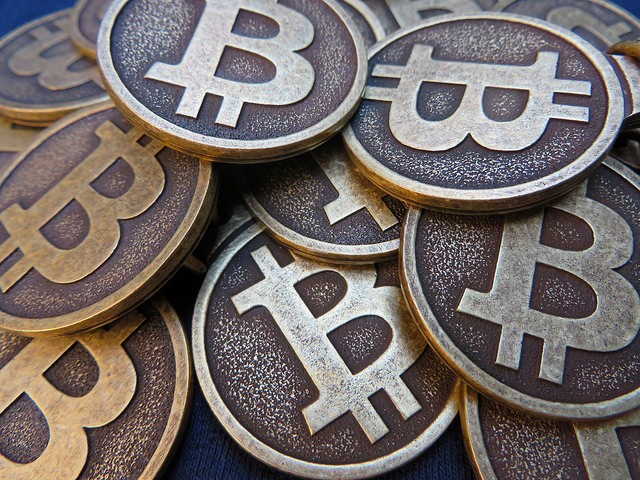Interview: Bitcoin Advocate Claims Currency Comes With 'Power, But Also Responsibility'

A pile of Bitcoin keychains. (BTC Keychain/Flickr)
 Jehan Chu is speaking today, June 23, 2014, at Asia Society's Hong Kong center in a panel discussion entitled "Bitcoin Will Save (or Destroy) the World."
Jehan Chu is speaking today, June 23, 2014, at Asia Society's Hong Kong center in a panel discussion entitled "Bitcoin Will Save (or Destroy) the World."Depending on whom you ask, Bitcoin — an anonymous, decentralized, peer-to-peer digital currency — is either the bane or boon of international currency system. Its critics point to the unregulated currency's infamous price volatility, its vulnerability to speculation and its use in illegal markets as evidence for its eventual failure. Although more retailers are now accepting Bitcoin, its initial growth came primarily from its use on the online black market Silk Road.
Yet Bitcoin is not without its proponents. Jehan Chu, the founding member of the Bitcoin Association of Hong Kong and a Bitcoin investor himelf, sees enormous potential in the nascent digital currency. Chu will be taking part in a panel discussion — where he will be joined by at least one naysayer — on Bitcoin today at Asia Society Hong Kong Center. Earlier, he talked to Asia Blog via email.
Bitcoin demand seems to be particularly strong in China. Why is this the case?
Capital controls in mainland China have created a desire for alternative means of exchange both internally and internationally. Bitcoin by its nature is independent of any national systems and can facilitate easy flow of value between parties whether they are in the East, West, or anywhere in-between, for low cost and nearly instantaneously. Bitcoin has also proven to be a strong (though volatile) investment, returning over 600% to those who invested in the beginning, and there is a keen interest in highly speculative investments in China.
Created just five years ago, Bitcoins are still relatively new. What are some areas for improvement?
.jpg)
Jehan Chu
The price volatility of Bitcoin is a major issue that will even out over time as volume of transactions increase. People forget that this is still an experimental technology (much less currency) and that it took decades for existing currency systems to achieve stability. Personal security is also an issue, as users do not appreciate the immense responsibility that comes along with an irreversible transaction currency. With banks and credit cards, there is a system for transaction reversal (or at least complaints), whereas with Bitcoin it is a final transaction every time. There is enormous power, but also responsibility, with this (to paraphrase Spider-Man).
Bitcoin has been lauded as the currency of the Internet, but also criticized as “the currency of predators.” It has been said to be used for clandestine illegal activities such as buying drugs, hiring assassins and trading child porn. Are there ways to crack down on this illegal activity without regulation?
While I am biased, I think that it is primarily the media and opportunistic legislators who have unfairly branded Bitcoin as a currency of predators for their own purposes. In fact, there is vastly more illegal activity with U.S. dollars (the de facto currency of illicit activity) than with Bitcoin. While there are aspects of Bitcoin which may make it easier to move money, the U.S. criminal justice system has proven in many instances that existing controls for illegal activity are sufficient to capture and prosecute, as is the case with normal U.S. dollars. I do believe that an amount of common-sense regulation could be helpful, but more for consumer protection during this initial transition period rather than for the sensational, headline-grabbing reasons that are put forth.
What are the costs and benefits of regulation? Would a certain level of government regulation be positive for Bitcoin, by resulting in its wider adoption?
As with any government regulation, there is a trade-off between protection and growth; greater protection often stifles growth. At the same time, I do think a certain amount of regulation is acceptable in the early period of adoption by the public. While many in the Bitcoin community would disagree with this position, I am a pragmatist and believe that the technology will evolve past most regulation eventually anyway, so early regulation will only serve to help validate and normalize Bitcoin adoption in the mainstream population. Regulators like Benjamin Lawsky from the New York Department of Financial Services have shown an openness to learn and apply common-sense to regulation while encouraging growth, and I would generally support this approach.
Christine Chung and Emily Feng contributed to this blog post.

